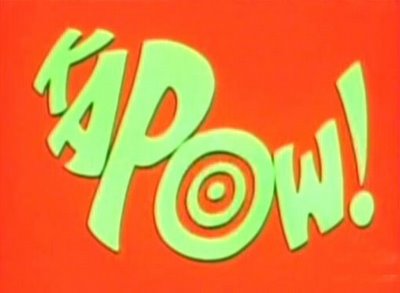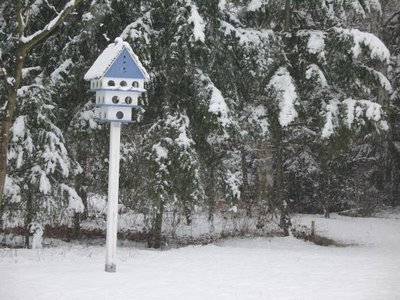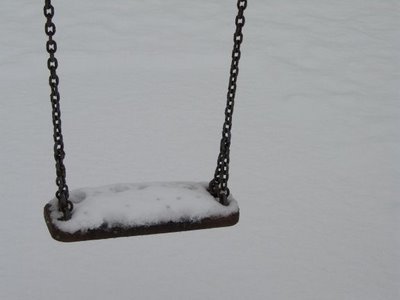
Wow, that was quick! With the combined help of Oscar show producer Gil Cates, who kept thank-you speeches to a bare minimum, AND my trusty fast-forward button, I managed to zip through the taped show in about 2 hours. And I managed to NOT listen to the news all morning, even resorting to covering my ears with my hands and humming "zip a dee doo dah", in a successful effort to not hear any Oscar results before I had a chance to watch the tape.
Why, you may ask? For one thing, the Oscars have been a high point of my year for about a quarter century...I love movies, and I admit to loving the pomp, pageantry and glitter of the Oscar show. And for also close to a quarter century, I have been taking part in an Australian friend's Oscar prediction competition, so it was fun checking off the ones I predicted right (for the record, 15 out of 24 awards, or, under my friend's points system, 41 out of 66 possible points...not too shabby and down only a slight tick from last year's 15 awards/43 points).
The awards:
It's a cliché, but true as far as I'm concerned - it's not to win, but to be nominated that's important. There is no objective way of judging the performances or artistic efforts of the nominees...as a constructivist, I'd argue that every viewer constructs his or her movie experience differently, with his or her personal life experience and current situation playing large parts in how a movie, a song, a score or a performance are perceived.
Having said that, I can't quibble with any of the major results*, which I'm sure all were and are excellent. The "Crash" upset at the end really was an upset; I had been pretty sure it would win, especially after Ang Lee picked up his overdue Best Director award. Of course, now that I know everyone in L.A. was IN "Crash" (host Jon Stewart early in the show asked for a show of hands of who was NOT in the movie), it's no wonder the film won.
*is Best Song a major category? Maybe I'm just an out-of-touch loser, but I feel the best winning songs have always been somewhat timeless...I can't believe they picked a foul-mouthed hip-hoppy piece of c**p... but that's just me, I guess.
Scorsese: 0 Three Six Mafia: 1
Enough said.
The honorary award for Robert Altman was touching, I liked his metaphor of movies as sandcastles. Among the clips of his films, I thought one of my favorites, "A Wedding" was conspicuously absent. Anyway, now I can't wait to see "A Prairie Home Companion".
The show:
I thought Jon Stewart acquitted himself very well. As I don't watch his show, I'm not that familiar with his brand of humor, but I understand he toned down the political edge considerably, leaving the speechifying to George Clooney. As always, I enjoyed the movie montages, of which there were several, prompting Stewart to comically plead "we're all out of clips! folks, send in clips, I don't care if they're on Beta!"
The films:
This year, I hadn't really seen very many of the nominees (the biggest of them all, "Brokeback Mountain", hasn't even been released here yet). But I was really intrigued by many of the clips they showed, and am definitely going to see "Capote", "Brokeback Mountain" , "The Constant Gardener" and "Good Night, and Good Luck".
A note on "Crash":
George Clooney rightly pointed out that Hollywood has for a long time been ahead of general public awareness of social problems, and he understandably saluted the industry for that.
However, some of the films touted this year, including "Crash", seem to have it backwards.
"Crash" depicts a Hollywood writer's imagination of a deep and brutal racial divide, while the truth out there is that much of the nation is successfully trying to live with each other in a richly diverse multiculturality (if that's even a word), and to smooth out old divisions and injustices. I'm not sure what purpose is served when old scabs that have been healing quite nicely are picked at and re-opened.
I also agree what noted film critic Kenneth Turan said, "I do not for one minute question the sincerity and integrity of the people who made "Crash," and I do not question their commitment to wanting a more equal society. But I do question the film they've made. It may be true, as producer Cathy Schulman said in accepting the Oscar for best picture, that this was "one of the most breathtaking and stunning maverick years in American history," but "Crash" is not an example of that."
+++
On balance, 2005 really was an excellent year in films, in my ever humble opinion, with a great variety of subjects and treatments. So, keep going to the movies...don't engage in piracy...remember, you're stealing from all these handsome folks in Hollywood if you do...and some of those women can only afford clothes that barely cover their breasts! ;)





















































